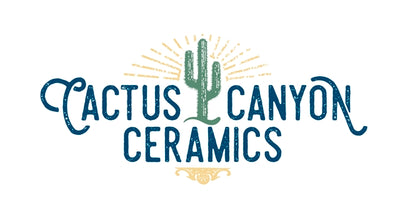After talking with people about their impressions of extra virgin olive oil, I believe many have the wrong idea about what constitutes quality. Many people associate high quality extra virgin olive oil with small farmers crushing their own olives using machinery and processes passed down over generations. While it is fun to think of grandpa and the kids collecting, pressing and bottling olive oil, and you might think… “this is as close to the earth as can be, and must be the real thing and healthy”, ….there are problems with this thinking.
#1. Freshness of the fruit is key
Olive oil is a fruit juice. The best quality olive oil is produced when the olives are immediately crushed after being picked from the tree. The best olive oil mills in Spain process the olives within a couple of hours of harvesting. From the trees, the olives go into bins, then onto a truck which hauls it to the mill where the olives are immediately crushed. Many small olive farmers harvest on one day, and it may be a day a two after that the bags or bins of olives arrive to the local processing mill. Deterioration in quality of the fruit depends upon a number of factors, including temperature and how ripe the olives are.

#2. Size matters – An ideal mill is not too big and not too small
Spain is the largest producer of olives in the world. There are many scales of olive oil production in Spain, and the largest mills produce hundreds of thousands of bottles. Hundreds of thousands of hectares are harvested each year. At the largest scale, it is hard to focus on high quality, mostly because each day, trucks arrive with olives from various fincas (ie land parcels), some of which might produce top quality olives, and some not. So large scale production turns into an average of what is harvested, good and bad and usually several varieties.
Mills need to be a size that assure they are economically viable. In most communities in Andalusia, you will find one or two “cooperativas”. The cooperativas are formed by many small and mid-size olive producers with the objective of sharing the cost of the machinery and milling. Similar to the large mills, the cooperativas cannot focus on quality. Each day during harvest, many small land holders arrive with their production (maybe a couple of truck loads or cart fulls), and this is mixed in with the what is currently running through the plant. Again, the end product becomes an average of the quality hauled to the plant.
The mills best positioned for producing the highest quality extra virgin olive oils are the ones that can best control the production by source, quality and variety of olive. This is usually private, family mills with their own production (fincas).

#3. You need a top quality Catador (not a Matador)
Sunshine, rain and soil are just some of the variables that determine when fruit ripens. Olives can come to a mill from many parts, sometimes as fair away as 25 miles or more. To assure quality, someone needs to determine the order of harvesting and processing. And this task falls to the catador. A catador is an expert on the growing and categorizing of olives and olive oil. To produce top quality extra virgin olive oil, the catador needs to be familiar with each of the fincas where the olives are produced, and he/she needs to know the varieties and conditions in each place. The catador is the maestro conducting the harvest. The catador schedules the harvesting of each finca in a sequence that allows the mill to stay busy, but also favors the production of the highest quality of olive oil.

#4. And, yes,.. you need Stainless Steel
The top quality mills have the newest machinery. New mills, constructed in the past decade have a distinct advantage over older mills in the production of quality. New mills are organized for immediate processing and is streamlined from the stainless steel dump point until the oil is finally stored in temperature controlled stainless steel tanks. And with newer mills, lot numbers are assigned that are associated with harvest point, variety and quality. Everything is planned and controlled, assuring quality.
Old style mills are harder to clean, processes are not as streamlined and final storage is a little more dicey. Some mills have little incentive to improve because they are able to sell their production easily. I am thinking of a couple of mills I passed by in Jaen. From brief conversations thier, I have the impression that they are not interested in organic production, nor are they particularly worried about producing top quality. Their product gets sold and it is a business. They make money. No reason to change something that works. Of course, there is room in the market for many levels of quality. I am in favor of the different levels of quality, but it is important that the end customer pays for what they get. If it is lower quality, the price should be lower. High quality should command a higher price. However, it does not always work this way, especially in the United States.

Conclusion
The highest quality extra virgin olive oil is the result of the fruit being harvested at the right time and then quickly and cleanly turned into extra virgin olive oil that is stored in modern, temperature controlled tanks. Since it is hard to see behind the scenes and know which mills produce the best quality, the best option for a consumer is to learn as much as you can about the different olive oils in the market, try them out, and then settle on a source you trust.
About the Cold Pressed Elixir and the Author
Cold Pressed Elixir is a new, organic extra virgin olive oil being sold by GringoCool. It is available at gringocool.com and also on amazon.com. Cold Pressed Elixir is brought to market after several years of research and preparation by Steve at GringoCool. Only a small portion of olive production is organic in Spain, maybe less than 5% of the total. So, to assure top quality, it is critically important to find the best quality organic fincas and work with a modern, efficient mill in the production and bottling of an organic extra virgin olive oil.
Please give Cold Pressed Elixir a try. It is the real deal. The taste is of olives and the quality is the highest. The bottling and packaging was developed so that it is practical and to leave as small an ecological footprint as possible. We feel it important to provide our customers with no-nonsense value – the highest quality of Spanish, organic extra virgin olive oil at the most competitive price possible.
Thanks for reading. – Steve



